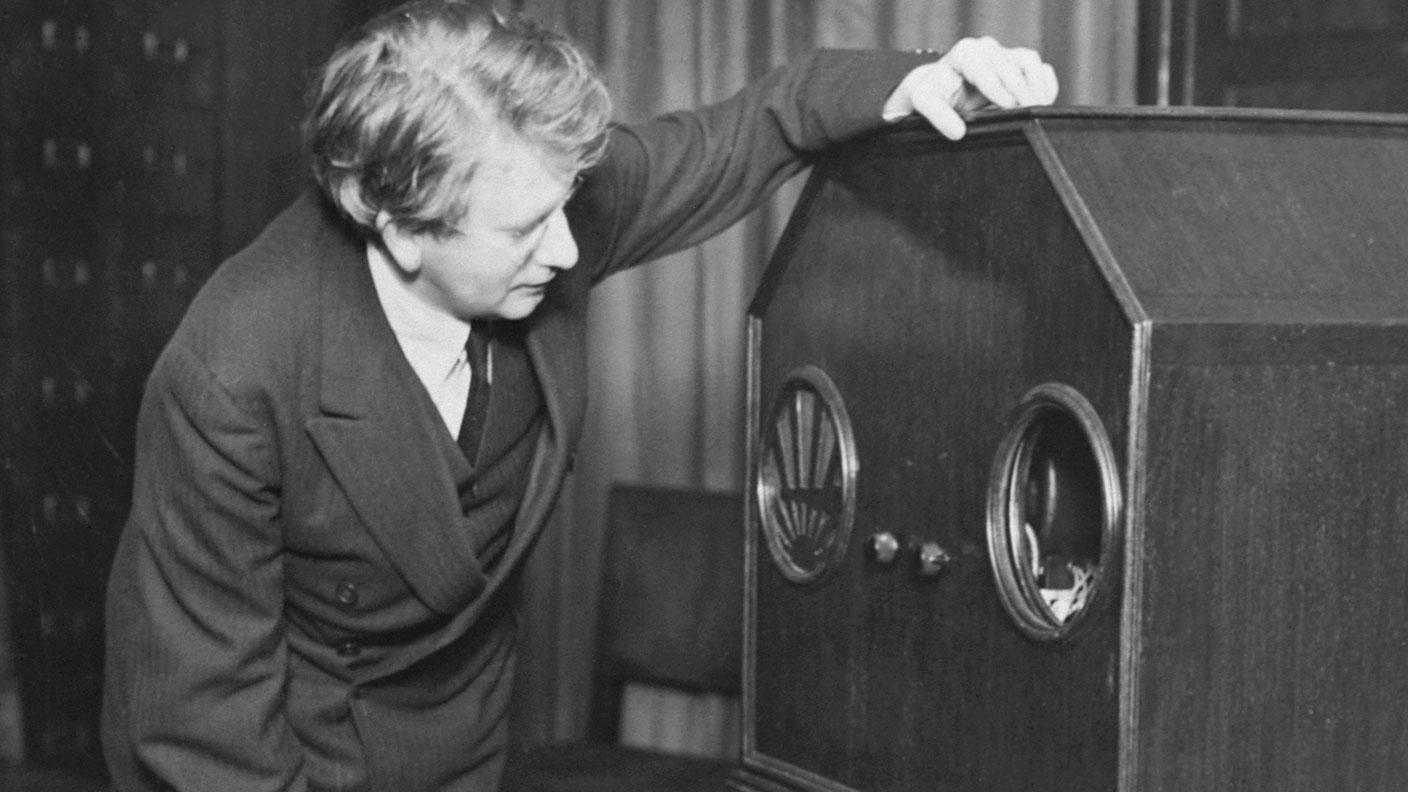22 August 1932: BBC starts early TV broadcasts
On this day in 1932, John Logie Baird, the inventor of television, began to conduct experimental broadcasts on the BBC, using his new technology.


Get the latest financial news, insights and expert analysis from our award-winning MoneyWeek team, to help you understand what really matters when it comes to your finances.
You are now subscribed
Your newsletter sign-up was successful
Want to add more newsletters?
In October 1922, the British Broadcasting Corporation was set up to provide radio broadcasts to the UK. The new technology proved so successful that by 1930 half of all households had a radio licence.
By 1932, the BBC had turned its attention to a new technology: it gave John Logie Baird, the inventor of television, studio space to conduct experimental broadcasts.
Within two years of the tests starting, extended trials of both Baird's system and one developed by EMI and Marconi were commissioned, with EMI/Marconi's ending up being chosen. From August 1936, a regular TV service ran until it was shut down on the eve of World War II (due to fears it could inadvertently help German bombers to navigate).
Try 6 free issues of MoneyWeek today
Get unparalleled financial insight, analysis and expert opinion you can profit from.

Sign up to Money Morning
Don't miss the latest investment and personal finances news, market analysis, plus money-saving tips with our free twice-daily newsletter
Don't miss the latest investment and personal finances news, market analysis, plus money-saving tips with our free twice-daily newsletter
In 1946, the TV service resumed. Despite post-war austerity the number of viewers rocketed, with 20 million people watching the coronation of Queen Elizabeth II in 1953.
However, there were fears that the BBC's monopoly on TV would stifle debate and innovation. So the Television Act of 1954 set up the Independent Television Authority to allocate regional franchises for a commercial television channel, funded by advertising.
The first of these stations began broadcasting in 1955, and by 1962 the whole of the UK was covered. Channel 4 was introduced in 1982 and Channel 5 began in 1997.
Get the latest financial news, insights and expert analysis from our award-winning MoneyWeek team, to help you understand what really matters when it comes to your finances.

-
 31 August 1957: the Federation of Malaya declares independence from the UK
31 August 1957: the Federation of Malaya declares independence from the UKFeatures On this day in 1957, after ten years of preparation, the Federation of Malaya became an independent nation.
-
 13 April 1960: the first satellite navigation system is launched
13 April 1960: the first satellite navigation system is launchedFeatures On this day in 1960, Nasa sent the Transit 1B satellite into orbit to provide positioning for the US Navy’s fleet of Polaris ballistic missile submarines.
-
 9 April 1838: National Gallery opens in Trafalgar Square
9 April 1838: National Gallery opens in Trafalgar SquareFeatures On this day in 1838, William Wilkins’ new National Gallery building in Trafalgar Square opened to the public.
-
3 March 1962: British Antarctic Territory is created
Features On this day in 1962, Britain formed the British Antarctic Territory administered from the Falkland Islands.
-
10 March 2000: the dotcom bubble peaks
Features Tech mania fanned by the dawning of the internet age inflated the dotcom bubble to maximum extent, on this day in 2000.
-
9 March 1776: Adam Smith publishes 'The Wealth of Nations'
Features On this day in 1776, Adam Smith, the “father of modern economics”, published his hugely influential book The Wealth of Nations.
-
 8 March 1817: the New York Stock Exchange is formed
8 March 1817: the New York Stock Exchange is formedFeatures On this day in 1817, a group of brokers moved out of a New York coffee house to form what would become the biggest stock exchange in the world.
-
7 March 1969: Queen Elizabeth II officially opens the Victoria Line
Features On this day in 1969, Queen Elizabeth II took only her second trip on the tube to officially open the underground’s newest line – the Victoria Line.

